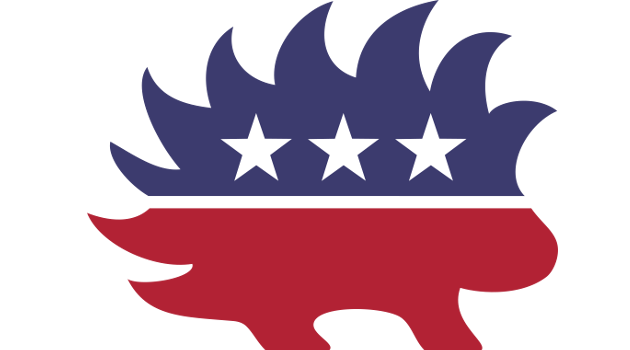Is the United States becoming more libertarian? In terms of social tolerance, there are reasons for optimism.
- The legal harassment of drug users is declining.
- Legal harassment of gay people has virtually disappeared.
But when looking at economic issues, there are plenty of reasons to be pessimistic.
- There is relentless pressure to increase tax rates.
- Government spending is on an upward trajectory.
- Politicians want further increases in the burden of spending.
- The burden of regulation and red tape is expanding.
Since my work focuses on economic policy, I don’t think the country is becoming more libertarian. Instead, I would argue we’re becoming more like Europe.
That’s not the worst possible outcome. After all, European nations rank highly in the Human Freedom Index.
But not exactly progress. And definitely not the kind of society libertarians fantasize about.
That being said, Gerard Baker of the Wall Street Journal writes that America may be on the verge of a “libertarian moment.” He starts by presenting a grim hypothesis consistent with public-choice theory.
The rising fear among American conservatives since the early days of the Covid pandemic has been that the nation would emerge from the crisis significantly less free. …Once introduced, rules almost always get more expansive, seldom more limited. Taxes levied for a temporary exigency become perpetual obligations. Government agencies built to administer some specific function are absorbed into the permanent bureaucracy. When a crisis is over, authorities may relinquish some of the powers they assumed during the emergency, but you can be sure that the government’s writ will run permanently larger than before. Wars, depressions, public-health emergencies lead to bigger government, more rules, more-onerous regulations.
He then suggests there will be a backlash.
Indeed, he thinks it has already started.
But let’s indulge a radical thought for a moment. What if the opposite is true this time? What if the ratchet slips, and rising popular hostility to arbitrary, petty, overbearing and ineffective rules induces a popular backlash? Isn’t it possible that the inconsistency, arrogance and mendacity of the people attempting to order our lives will produce the opposite of their desired outcome? …We have seen it most powerfully at the political level in Virginia… Voters explicitly rejected the attempt to make their children wards of the state, and the new Republican governor, Glenn Youngkin, is in a classic struggle with overweening bureaucrats desperate to maintain their reign of pointless mask-mandate authority. In Florida, Gov. Ron DeSantis appears to be cruising to re-election on a record of actively resisting the authoritarian demands of experts, Democrats and the media. …Perhaps the biggest cause for optimism is that this time people don’t have much cause for faith in the omnipotence of the state. …Instead of Franklin D. Roosevelt, Harry S. Truman, Dwight D. Eisenhower and Douglas MacArthur, we have Joe Biden, Kamala Harris, Anthony Fauci and Rochelle Walensky. If people of this caliber had been in charge in 1942, we might all be speaking German.
I want to believe this political backlash is the start of a libertarian moment, but I’m skeptical.
It’s good that more Americans understand that Washington is filled with venal, corrupt, and incompetent people.
But is that going to lead to pro-liberty reforms?
A few states are doing good things, most notably tax reform and school choice.
But there’s no hope in the near future for good policy from Washington.
Indeed, we’re probably going to see more bad policy. As I wrote at the start of the year, Biden’s horrible “Build Back Better” plan for bigger government is one or two votes away from enactment.
To be sure, the risk of new fiscal burdens may decline if Republicans gain control of Congress in November. But even if one assumes that those Republicans want to do something good, there’s no way they’ll have enough votes to overcome a veto from Biden.
The bottom line is that there is no chance of good policy from Washington until after the 2024 election.
And if we wind up with a typical big-government Republican in the White House, the wait for good policy will be much longer.
P.S. We got lots of pro-liberty reforms in the 1990s with Bill Clinton in the White House and Republicans controlling Congress, so divided government can be a recipe for good results. That being said, I fear Biden is more like Obama, meaning the best we’ll be able to hope for is gridlock.


